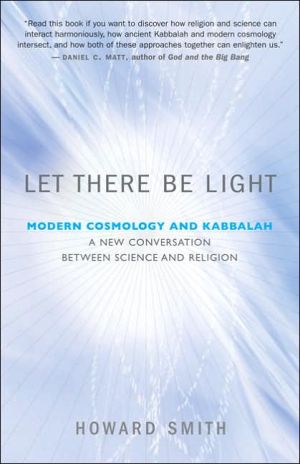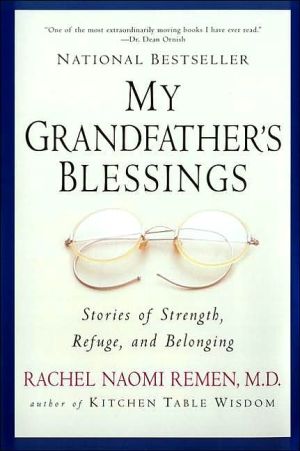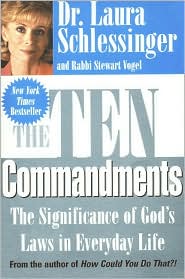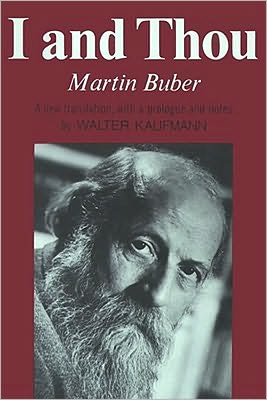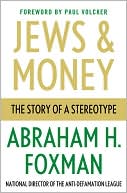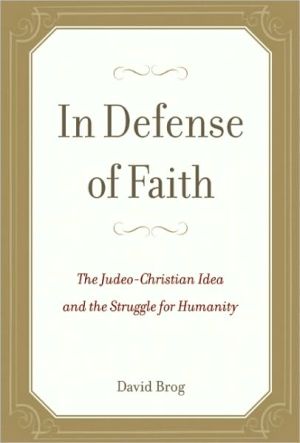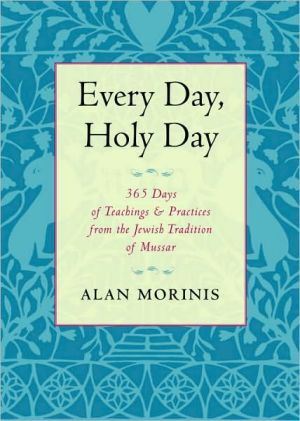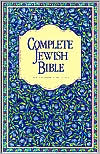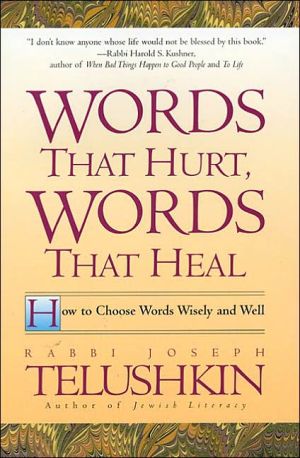Let There Be Light: Modern Cosmology and Kabbalah: A New Conversation Between Science and Religion
In Let There Be Light, Howard Smith, a research astrophysicist and traditionally observant Jew, explores how modern scientific understandings of the cosmos complement Judaism’s ancient mystical theology, the Kabbalah. He argues that science and religion are not only compatible, but that a healthy, productive dialogue between the two sheds light on ethics, free will, and the nature of life, while at the same time rejecting fundamentalist misinterpretation and the pseudoscience of creationism....
Search in google:
In Let There Be Light, Howard Smith, a research astrophysicist and traditionally observant Jew, explores how modern scientific understandings of the cosmos complement Judaism’s ancient mystical theology, the Kabbalah. He argues that science and religion are not only compatible, but that a healthy, productive dialogue between the two sheds light on ethics, free will, and the nature of life, while at the same time rejecting fundamentalist misinterpretation and the pseudoscience of creationism. Written for a general audience, yet supported by the most current and accurate scientific research, the book discusses topics such as modern quantum mechanics and mystical notions of awareness; how Kabbalah’s ten sefirot mirror the developing phases of an inflationary universe; and the surprising parallels that exist between the Big Bang theory and Kabbalah’s origin theory. Smith delves into complex ideas without resorting to jargon or mathematical equations, creating an intelligent, authoritative work accessible to all readers. Publishers Weekly Can religion answer any of the questions raised by science? Can science answer the questions posed by religion? Smith, an observant Jew who is a senior scientist at the Harvard-Smithsonian Center for Astrophysics, brings us a work that is "deliberately not... scholarly." It aims to educate and enlighten readers while attempting to fuse an entry-level explanation of the vast and fascinating subject of cosmology with the elusive elements of the Kabbalah. Despite a fluid and uncomplicated organization, Smith fails to communicate with his target audience those either unfamiliar with or uninterested in science and religion. His unwieldy prose, riddled with parenthetical allusions to former or pending chapters, and littered with qualifications, makes the science hard to follow for even the most avid fans of popular science magazines. Admittedly, his discussion of the Kabbalah is "a modest extraction of a few relevant ideas," but his cursory extrapolations confuse rather than clarify. If enthusiasm could make this an accessible read, Smith could well have succeeded. Unfortunately, readers may feel left in the dark after wrestling their way through his lecture. (Nov.) Copyright 2006 Reed Business Information.
Let There Be Light\ Modern Cosmology and Kabbalah - a New Conversation Between Science and Religion \ \ By Howard A. Smith \ New World Library\ Copyright © 2006 Howard Smith\ All right reserved.\ ISBN: 978-1-57731-548-3 \ \ \ \ Chapter One\ Religion and Science in Harmony \ This is a book about modern scientific cosmology and the Jewish mystical tradition of the Kabbalah. Cosmology is the study of the universe as a whole, its creation, and its future evolution. The Kabbalah, "the Received," is a Jewish mystical tradition that originated more than two thousand years ago and remains vigorous today; its earliest text, the Sefer Yetzirah, is an explicitly cosmological inquiry probing the inner workings of the Divine in the world. Modern cosmology and Kabbalah are complementary in essential ways, and I hope to persuade you that they serve to illustrate a much broader principle, the underlying harmony of science and religion.\ There is a perceived division between our routine lives and our spiritual selves, one that has been accentuated by the pervasive, intrusive success of modern technology. To the extent that people don't particularly understand either technology or science, this gap widens. Two approaches have predominated in recent struggles to harmonize these two facets of our existence. The first one, simply stated, argues that science and religion are separate but equal. The Bible is a source of ethical and religious inspiration, and science deals with an objective, quantitative modeling of physical phenomena. In thewords of Galileo (originally expressed by Cesare Cardinal Baronio), the Bible tells us how to go to heaven, but not how the heavens go. George Lemaître, a Catholic priest and a pioneer of modern cosmology, put it more bluntly: "The idea that because they [the writers of the Bible] were right in their doctrine of immortality and salvation they must also be right on all other subjects is simply the fallacy of people who have an incomplete understanding of why the Bible was given to us at all." Scientists commonly articulate this attitude, but to me it is disconcerting, because it formally segregates two elemental areas of our lives and imposes a dissonance that is awkward, uncomfortable, and, when you think about it, a priori peculiar. I also believe it is unnecessary.\ The second approach, likewise stated simply, holds that the Bible and science are in agreement when one or the other is nudged, or interpreted, into conformity. Those who treat the scriptures literally argue that today's scientific theories are conjectures: incorrect or incomplete theoretical models that are doomed to be forever "only models," even if they improve. Literalists often take specific issue with models of the Creation, many of which we will be discussing later. Other proponents of conformance admit that science is probably correct, but they interpret the Bible broadly to find consistency, suggesting, for example, that people naturally lived longer before the time of Noah than they do now because the conditions on Earth were different, changing for the worse after the Flood. Both of these alternatives are, at least to me, ad hoc at best and apologetic at worst.\ Over the past twenty years or so, an active group of Christian theologians with strong backgrounds in science have attempted to classify and analyze the various ways in which people can integrate science and religion. Ian Barbour, Arthur Peacocke, and Sir John Polkinghorne, for example, look beyond what Barbour terms the "independent" or the "conflicting" attitudes I just mentioned to interactions characterized by respectful dialogue and a sharing of ideas. It is relatively easy, according to Polkinghorne, for people to develop what he calls a "Deistic" view of the universe, in which an appreciation of its scientific wonders and mysteries inspires a spiritual awareness, with or without a sense of some larger purpose. But they feel, as I do, that this is insufficient, and one of their aims has been to find ways to integrate the role of a personal God into a scientific worldview.\ Efforts to harmonize religion and science are typically undertaken by people who are religious, while nonreligious scientists rarely even wonder about the matter; it is simply not that important to them. This book, for example, is my attempt to work through issues that many religious people find profoundly significant. One important motivation for the religious, it seems to me, is a nagging concern that if scripture is true about some things, then it ought to be "true" about all things, including its descriptions of the natural world. There is, of course, a different worry, too: if scripture is wrong about some things, perhaps it is also wrong about others. How can it be Divine? Some religious-minded people seek reconciliation with science not necessarily to gain new insights into the real workings of God's world, but rather to reinforce or even justify a belief in other matters, such as a promise of redemption, the moral commandments, or an assurance that our lives have meaning. As the modern Christian astronomer and fundamentalist Hugh Ross puts it, "Many [believers] fear that believing in a billions-of-years-old Earth and universe means they must accept a multimillion-year history for the human species" or, even worse, a universe without any need for God. People feel threatened. It perhaps goes without saying that underlying these struggles for reconciliation, and exacerbating some of their current political controversy, is people's presumptive faith in the accuracy of science.\ A search for spiritual harmony should be motivated by nobler feelings than those of being threatened, sentiments that can lead to spiritually debilitating, parochial, or needlessly defensive views. A search for truth and meaning should not presuppose its answers, either scientific or scriptural, and humility, at least to me, dictates an awareness that one does not yet fully understand the natural world or the biblical texts. We should seek in order to find and inquire in order to learn and grow. I write about the harmony of religion and science not because I feel under siege, but because I want to understand - and there is more, much more, to understand. Consider the invigorating words of Rabbi Abraham Isaac Kook (1865-1935), the chief rabbi in Israel prior to the establishment of the Israeli state: "We should not immediately refute any [scientific] idea [such as evolution, anthropology, cosmology, or biology] ... but rather we should build the palace of Torah [the first five books of the Bible] above it. In so doing we are exalted by the Torah, and through this exaltation the ideas are revealed ... to raise the banner in the name of God above the blowing of the winds for the benefit of all."\ Do I hope to convince atheists to become believers, or textual literalists to become scientists? Not at all. Not only is it not my intention to try, it actually would be contrary to my intention to try. To the atheists among my readers, I say in all honesty that I respect your considered principles. Nevertheless, I do hope that you live your lives in what I would describe as a "God-fearing" way: one that is caring and respectful of humanity, life, and the Creation. I also want you to know that you are missing something - a rich perspective of thought about complex issues, and a community of love and ritual. As for the religious among my readers who are skeptical (or dismissive) of science, let me be equally clear: I respect your beliefs as well. At the same time, I hope you live your lives realizing that, as God's stewards of the Earth, we must all apply our most rigorous intellectual efforts in science and technology to the task of caring for our world. Regardless of what you believe, it is vital to have a basic understanding of modern science. And I want you to know that you are missing something as well - a sense of wonder about and appreciation of God's majestic creation that can come only from a better understanding of it, just as every musician's appreciation of music has a depth that eludes those who only listen. God has clearly made the world in an ordered way, and given us analytic minds and free choice. These are precious gifts. Surely we are expected to use them; perhaps they have a purpose.\ The most frequent question I am asked about this material is, If science and religion can have a dialogue, can religion answer any of the questions raised by science? There was certainly a time when the answer to this question would have been yes. The very questions we are considering in this book, on the origins of the universe, of the Earth, and of life, were posed by philosophers and scientists and answered by theologians for hundreds of years. Today, I think the answer would have to be no. In fact, the various disciplines of science have discovered so much, so quickly, that all of these traditionally religious themes are now firmly in the domain of the natural sciences. It is a curious outcome that science's ability to address with seriousness, and even answer, many great spiritual mysteries has not in general resulted in its becoming more religiously acceptable. On the contrary, science stands accused of impoverishing the spiritual dimension by providing convincing answers! To me, the spiritual value of a wonder lies not in the ignorance of its particulars, but in the fact that it exists. Will this standoff continue? I don't know. We will look at a few intransigent mysteries later in this book - consciousness, quantum mechanics, and some aspects of the Creation - and I will leave it to you to arrive at your own conclusions.\ I am also asked the opposite question: Can science answer any of the questions posed by religion? Here I am unequivocal: at least in the domain of Jewish mysticism, science is essential to a sophisticated understanding of the nature of the world, the essence of the Creation, the possible meaning of unity, and many other topics, some of which we will address later.\ I suggest asking two different questions, namely, Can religion answer any of the questions raised by scientists? and correspondingly, Can science answer any of the questions raised by spiritual seekers? The answer to both of these is surely yes. In the following pages I will present a harmonized account in which religion and science form an alliance that looks beyond literal interpretations to conceptual intent in a mutually enriching synthesis intended to further our understanding of the creation of the universe.\ Cosmology and Kabbalah\ Why have I chosen cosmology, from all possible scientific disciplines, to present these ideas? For one thing, the idea that the universe began somehow with a "big bang" is widely familiar. Perhaps in part this is because the eminent British astrophysicist Fred Hoyle popularized the concept over four decades ago by giving it such a descriptive and memorable name (although, ironically, he meant the term to be derogatory). Hundreds of excellent and up-to-date science books on the market have popularized the success of this revolution in cosmology. The basic theory and its derivatives have enabled scientists to explain with remarkable accuracy the intricate birth and early evolution of the universe and to understand its salient attributes, such as the rapid expansion that we see. Many subtle predictions have been verified, and meanwhile, as increasingly ethereal features of the observed universe are being uncovered, the model continues to provide either credible explanations or a solid framework for variant ideas. So far, the essential picture remains robust.\ There is another, more important consideration. Cosmology is not just familiar to people, it is also important to them. Popular books on astronomy and cosmology fill shelf upon shelf in bookstores because people buy them. Newspapers frequently and prominently feature new discoveries about the age of the cosmos because their readers want to hear about them. People care. Despite its subtleties, complexities, or even perceived heresies, theories about the creation of the universe directly affect our sense of ourselves. No other branch of astronomy - all of which is immensely fascinating to people - appeals as directly to our spiritual needs as the study of the Creation. Even the search for planets around other stars is less compelling, perhaps because so many people have adopted the opinion that life is common in space and is just waiting to be discovered.\ Astronomers share this sense of the importance of cosmology. In the Bahcall Report, the scientific community's report to NASA and the U.S. Congress on the priorities for astronomy in the decade of the 1990s, the section on cosmology is titled, "Our Place in the Universe." The double entendre is intended. Astronomy can tell us firmly where we are situated in the cosmos with respect to the nearby stars, and by its study of the origin and evolution of the universe it also fixes the framework within which we must find our purpose. Finally, I have chosen cosmology as the lens through which to examine these questions because I am a research astrophysicist. Cosmology is a discipline I understand and teach.\ The biblical version of the Creation is, of course, even better known than the scientific one. An essential component of our Judeo-Christian and Western worldviews, biblical cosmology provides a concrete example we can use to compare with the scientific account. Like scientific cosmology, the biblical creation story is important to people, I think for the same reason: it constitutes a broad framework within which we find meaning in our lives. Yet these two popular narratives about our origins and our place are rarely woven together. On the contrary, as I mentioned before, there tends to be an uneasy sense that either the two are in conflict, in which case adherents of one often decide not to bother investigating the other, or there is a sense that they are in vague congruence, in which case people might conclude there isn't all that much to learn from the other. Religious believers may be wary of big bang cosmology because it appears threatening, while believers in science may be unfamiliar with, skeptical of, or even hostile to religious ideas about cosmology that appear to them as superstitious. These attitudes extend to views on religion and science overall. Both attitudes are, in my opinion, sadly mistaken. In this book I hope to illustrate how closely twined the physical and spiritual worlds really are and offer my personal view that they are complementary in ways that can provide insight and perspective to seekers trying to understand a little bit more about the world's mysteries, and what they might mean.\ Why compare scientific cosmology to the Kabbalah, a branch of Jewish mysticism? After all, the biblical creation narrative has inspired a diverse and sophisticated literature, with many traditions to draw upon as resources for exploring the compatibility of science and religion. Furthermore, mysticism is notorious for being personal, even "irrational"; how can it be associated with science? The term mysticism is even difficult to define. The pioneer of modern Jewish mystical scholarship, Gershom Scholem, refused to be pinned down to a narrow definition because, as he put it, "There is no such thing as mysticism in the abstract.... There is only the mysticism of a particular religious system." Nevertheless, it is generally fair to say that religious mysticism, Jewish mysticism included, incorporates a personal experience of the Divine of the kind the psalmist describes (Psalm 34:9): "Taste, and see that God is good" (using the literal meaning of the Hebrew ta'amu, taste).\ The Kabbalah emerged as a distinct movement of Jewish mysticism in twelfth- and thirteenth-century Spain, where it first be-came public, but it traces its roots all the way back to the patriarchs Abraham, Isaac, and Jacob. The oldest work of Kabbalah is the Sefer Yetzirah (The Book of Formation), a book that is cited in texts dating from the first century of the Common Era and which by the tenth century had its own set of commentaries. Another very early mystical work is The Bahir (The Illumination), a book referenced in the kabbalistic literature as early as the twelfth century, whose authorship is attributed to a first-century sage in Israel, Rabbi Nehuniah ben HaKana. The essential text of the Kabbalah, however, is the Zohar, which appeared around the year 1300 in Spain. The Zohar claims the inspired authorship of the great personality Rabbi Shimon ben Yohai, who lived and taught with a group of his companions in Galilee during the second century ce. Like other works of Jewish mysticism, the Zohar makes use of earlier esoteric material, as well as mystical passages in the Bible, the Song of Songs and the books of Ezekiel and Daniel being prime examples. The majority of the Zohar is structured as a mystical commentary on the Torah, but a very unusual commentary, one framed in a landscape of personal exploration. Daniel Matt, the translator and explicator of the new Pritzker English edition of the Zohar, describes it as "a mystical novel.... The text of the Torah is simply the starting point, a springboard for the imagination. At times the commentators become the main characters, and we read about dramatic mystical sessions with Rabbi Shimon or about the companions' encounters with strange characters on the road, such as an old donkey driver who turns out to be a master of wisdom in disguise." I will rely on the Zohar and its commentators for most of the cosmological concepts I compare.\ (Continues...)\ \ \ \ \ Excerpted from Let There Be Light by Howard A. Smith Copyright © 2006 by Howard Smith. Excerpted by permission.\ All rights reserved. No part of this excerpt may be reproduced or reprinted without permission in writing from the publisher.\ Excerpts are provided by Dial-A-Book Inc. solely for the personal use of visitors to this web site. \ \
\ Publishers WeeklyCan religion answer any of the questions raised by science? Can science answer the questions posed by religion? Smith, an observant Jew who is a senior scientist at the Harvard-Smithsonian Center for Astrophysics, brings us a work that is "deliberately not... scholarly." It aims to educate and enlighten readers while attempting to fuse an entry-level explanation of the vast and fascinating subject of cosmology with the elusive elements of the Kabbalah. Despite a fluid and uncomplicated organization, Smith fails to communicate with his target audience those either unfamiliar with or uninterested in science and religion. His unwieldy prose, riddled with parenthetical allusions to former or pending chapters, and littered with qualifications, makes the science hard to follow for even the most avid fans of popular science magazines. Admittedly, his discussion of the Kabbalah is "a modest extraction of a few relevant ideas," but his cursory extrapolations confuse rather than clarify. If enthusiasm could make this an accessible read, Smith could well have succeeded. Unfortunately, readers may feel left in the dark after wrestling their way through his lecture. (Nov.) Copyright 2006 Reed Business Information.\ \
